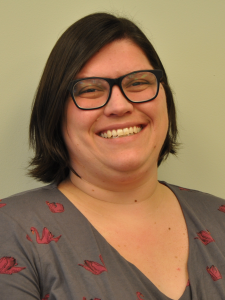 By Meghan Olsen Biebighauser
By Meghan Olsen Biebighauser
A few days ago, my mom and I took my children to the Minnesota Zoo. It was basically our first “fun” outing to an “actual place,” as my kids put it, and we really needed it. My 3–year–old, Robin, isn’t old enough to remember much about pre-COVID activities like the zoo, so this was all new for him.
As we walked the outdoor trails (which we practically had to ourselves), Robin was obviously thrilled. He did, however, keep giving the adults some real side-eye, almost as if he was thinking: “There’s been an actual tiger 15 minutes from our house, and I’m only just now finding out about this?!” It’s a fair enough complaint.
We’ve had several moments like this, though, over the last 10 months. In some ways, our lives have been more mobile than ever: I can log in to work or worship from anywhere at all, virtually attend weddings and graduations around the country, or tour the Louvre from my bed, if I want to!
You’d think this would make me feel more connected to a global community, or at least make my world feel larger. But instead I’m feeling more connected than ever to right here – the neighborhood that I call home.
“The simple acts of waving to our neighbors, sledding down the hill at the local park, returning books to the library drop-off, have become major items on our social calendar, where they were footnotes before.”
Because so many of our social connections have become virtual, the physical, embodied experiences that we have all happen, … right here, right where we are. With limited personal contact, the simple acts of waving to our neighbors, sledding down the hill at the local park, returning books to the library drop-off, have become major items on our social calendar, where they were footnotes before.
We’ve made many joyful discoveries this way! Early on in the pandemic, my 8–year–old, Frances, took up geocaching. It’s basically a worldwide scavenger hunt, and we were thrilled to discover that these little caches – these tiny treasures – were hidden all around us on the streets we walk daily, in the park a block away, inside the tree we lean against when we take a snack break on the playground. “Mom, these have been here this whole time and we never saw them!”
We’ve also grown quite fond of Fern, the deer that lives in the cemetery at the corner of East Lake Street and Cedar Avene – right in the middle of the city! Fern’s been there for a few years, and we’d spot her once in a while. But as our world has become smaller during the pandemic, we’ve become much more protective of Fern – making sure we see her every time we walk or drive by. And on days when we couldn’t spot her, we’ve reached out to friends and neighbors to make sure that someone’s seen her and that she’s well.
I DON’T THINK IT minimizes the absolute trauma and horror of these last 11 months to name the places where we’ve made joyful discoveries in our communities. A congregation is gathered outdoors, including new neighbors who may never have stepped inside the building to worship, but couldn’t help noticing the (socially distanced) crowd outside. Another congregation hosts a drive-through event inviting attendees to write letters to an elected official about an urgent local economic justice issue and people show up to do just that (and donate money to “stop the bleeding” until our lawmakers act). More than 150 synod leaders show up in two parking lots on successive Saturdays to be trained in nonviolent direct action (because if we’ve learned anything this year, it’s that we belong to each other and that our communities need our embodied presence to survive).
“Over the last 10 months, our lives have been more mobile than ever, … virtually.”
Jonathan Wilson-Hartgrove, in his book The Wisdom of Stability writes: “Maybe the single most important thing we can do if we want to grow spiritually is to stay in the place where we are. … Indeed, we might even go so far as to say that true Christian mission is not possible until we have established roots of love through the practice of stability.”
This year of forced-stability has been difficult, but I hope you’ve found moments of surprise and delight at the abundance that’s been right under our noses, unseen until now. I hope such experiences make us proclaim, as though we’d just discovered a tiger right in our backyard, “This has been here this whole time and I’m only just seeing it now?!”

